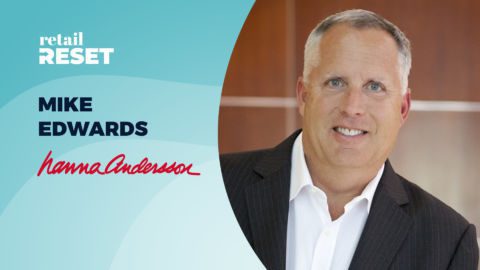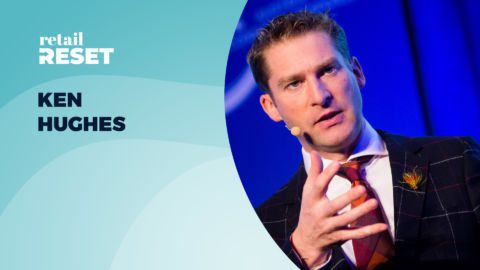With a retail career that spans 30 years and stints at brands including Sears and Neiman Marcus Group, Steve Dennis has become a go-to authority on the industry. As the founder and president of SageBerry Consulting and contributor to trusted publications like Forbes, he also has had the opportunity to distill his experiences — and conversations with numerous executives worldwide — into tactical best practices and frameworks for success.
His qualitative research and quantitative analysis have inspired the creation of his new book, Remarkable Retail: How To Win & Keep Customers In The Age Of Digital Disruption. But like many industry executives, Dennis is navigating a new reality driven by COVID-19. The underlying trends — from store closures to the shift to digital and the uncertain future of the mall — certainly are not new. However, the pandemic undoubtedly is causing these trends to accelerate, encouraging disruption to happen faster than ever.
Dennis sat down with Senior Content Strategist Alicia Esposito during the most recent episode of Retail Remix to discuss the positive and negative impacts of COVID-19, how the pandemic will influence the future of “experiential retail” and how consumers may (or may not) change forever. A few key takeaways from the conversation are below.
It’s difficult to gauge long-term customer impact.
Dennis has done his fair share of consumer research, “but this is such a different kind of experience,” he said. As a result, there are many unanswered questions about the long-term impact this crisis will have on consumer behaviors. “Will we just go back to the long-term trends we’ve seen for two decades-plus, or will consumers fundamentally be less inclined to shop in physical stores or big gathering places like regional malls? That’s a really hard thing to ascertain at this point.”
The gap between retail leaders and laggards widens.
Any retailer that went into this crisis in a weakened position will feel significant aftershocks from COVID-19, according to Dennis. “Whether they were in a weakened position because they didn’t have great competitive differentiation, had a weak balance sheet or limited liquidity, this just exacerbates the problems,” he said. “I think a lot of these weak retailers, unfortunately, aren’t going to make it through this, or will have to take really drastic action to keep their businesses afloat.”
A lot of the retailers that are likely to struggle, Dennis explained, fall in the “mediocre, boring middle.” These brands rank above retailers that tout low prices and expansive assortment and below high-value specialty retailers and brands that promise great service and exclusive products. Although Dennis has been writing and speaking about “the collapse of the middle” for several years now, he believes COVID-19 is going to accelerate the collapse, leading to turmoil for heritage brands and mall developers alike.
The future of the shopping mall is unclear.
As early as 2000, mall anchors began to see a slow decline. “A lot of people like to blame Amazon, but It’s actually been accelerated by off-price retailers and dollar stores,” Dennis said. Similar to the collapse of the mediocre middle, “the COVID-19 experience will only accelerate a trend of those second- and third-tier malls either going out of business or being massively repurposed, being turned into mixed-use development of health clubs, entertainment and so forth.”
The fundamentals of ‘Remarkable Retail’ are more critical than ever.
Although COVID-19 has presented its fair share of uncertainties and complexities for the retail industry, one thing remains clear for Dennis: there is increased need for remarkable retail. Hence the title of his new book, which he created based on his time working for several retail brands, including Neiman Marcus Group, consulting other businesses and speaking to executives on stages around the world. Remarkable Retail includes an eight-step framework for success. “These are not eight separate strategies,” Dennis explained. “They are really components of becoming more remarkable.” They include the need for retailers to be:
- Digitally Enabled;
- Human Centered;
- Harmonized (Dennis’ term for “omnichannel);
- Mobile;
- Personal;
- Connected;
- Memorable; and
- Radical.
“What I’ve found is that virtually all the retailers that are being successful today distinguish themselves on most, if not all, of these eight essential areas,” Dennis explained. “And I’m noticing, particularly in this current crisis, that the first six are almost table stakes for a lot of retailers. The last two are more differentiators, and I think these are the places where most retailers can really potentially distinguish themselves.”
Listen to the complete conversation to get Dennis’ perspectives on experiential retail, the direct-to-consumer (DTC) phenomenon and what strategies and technologies may rise to the top.













